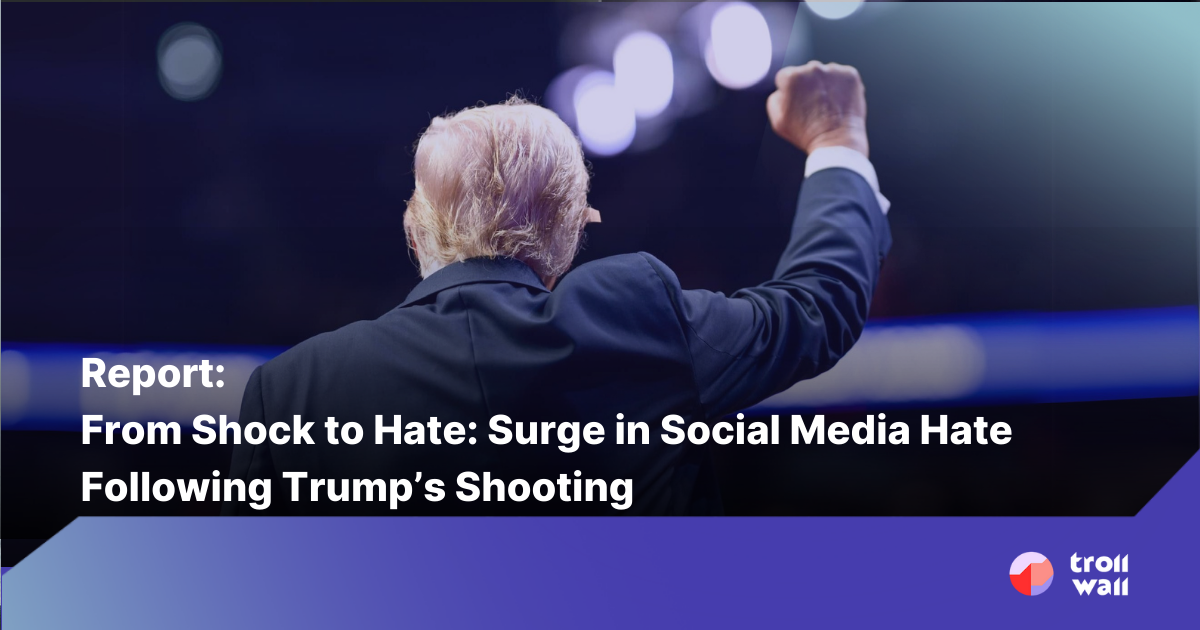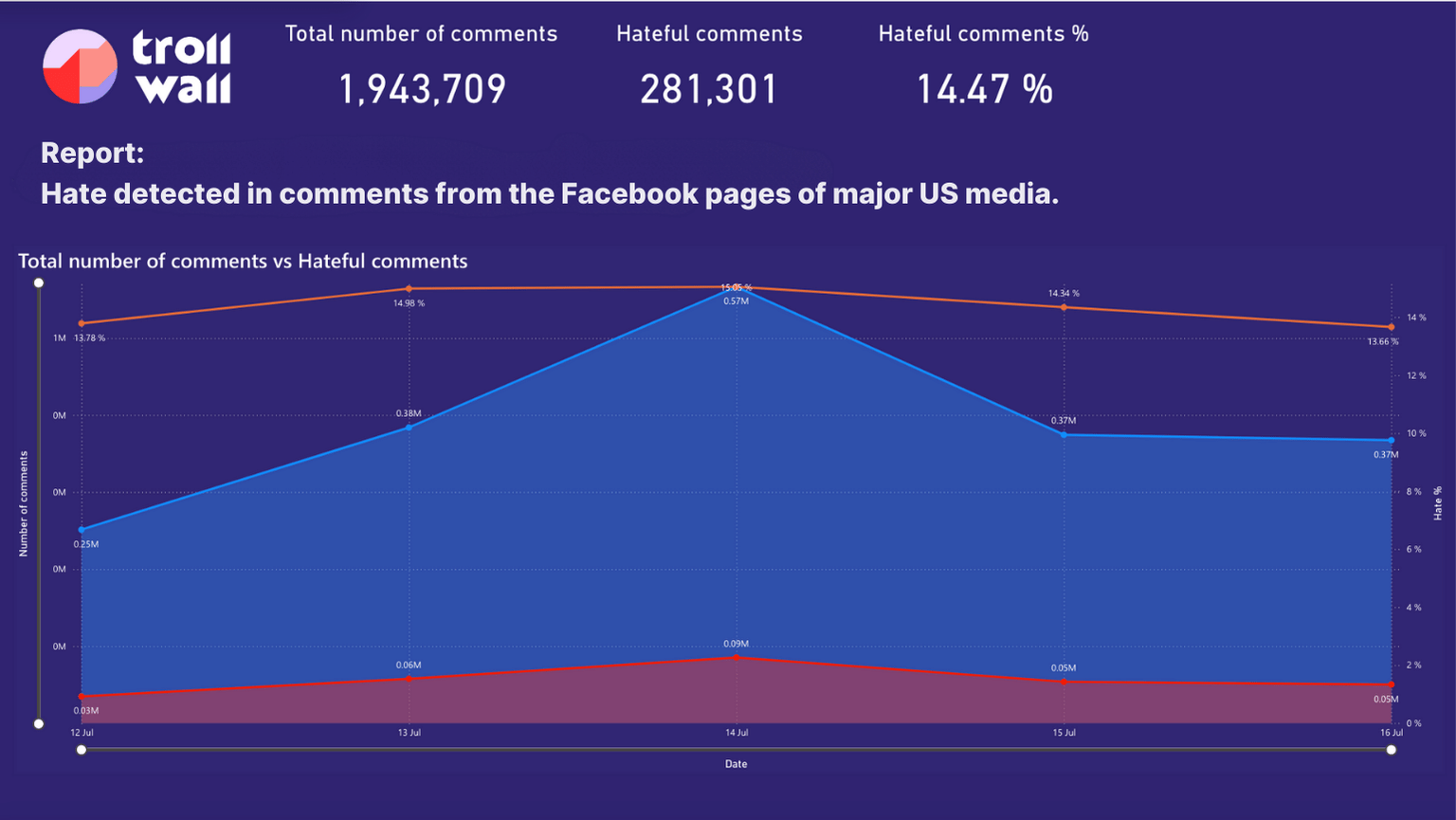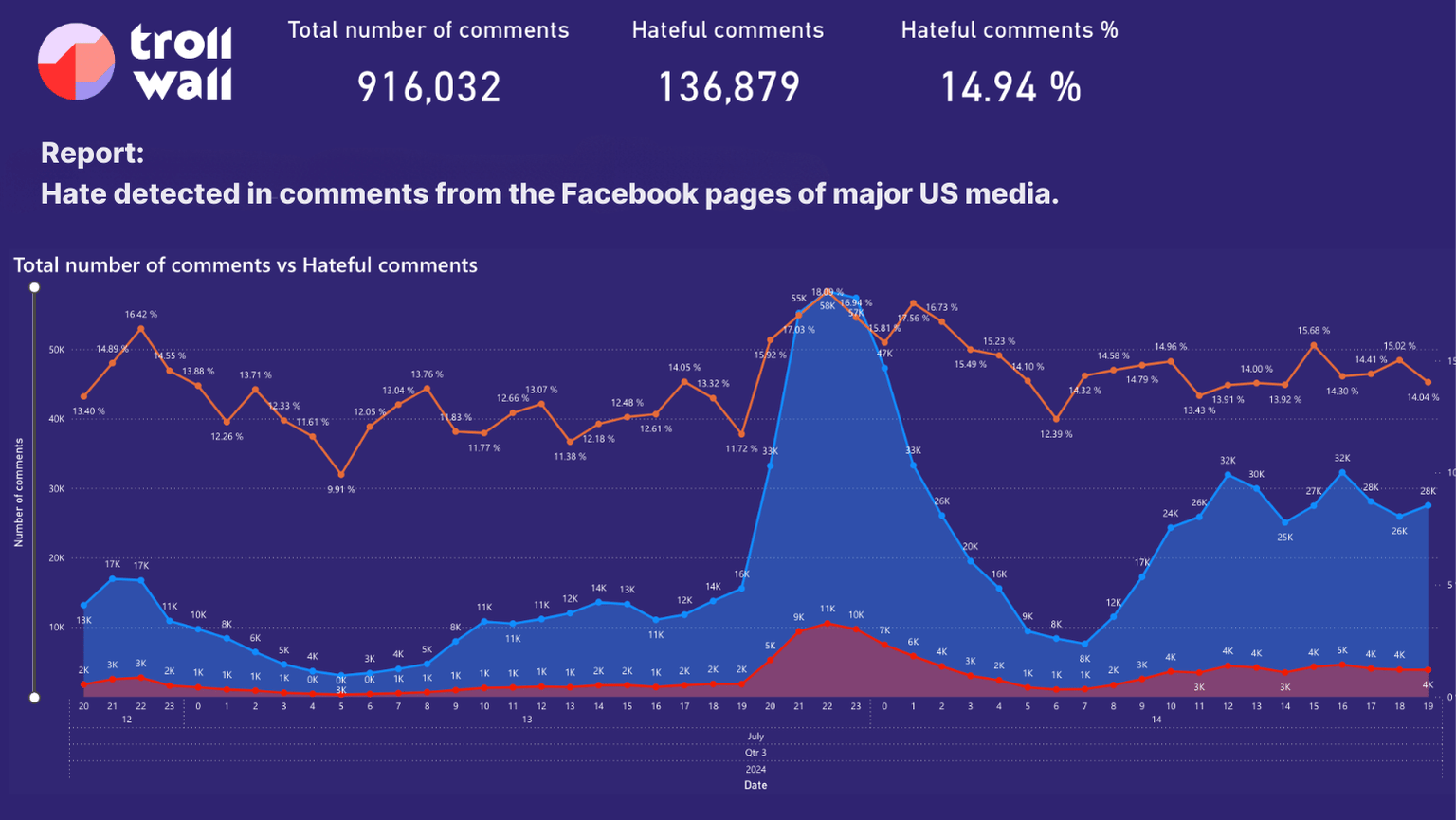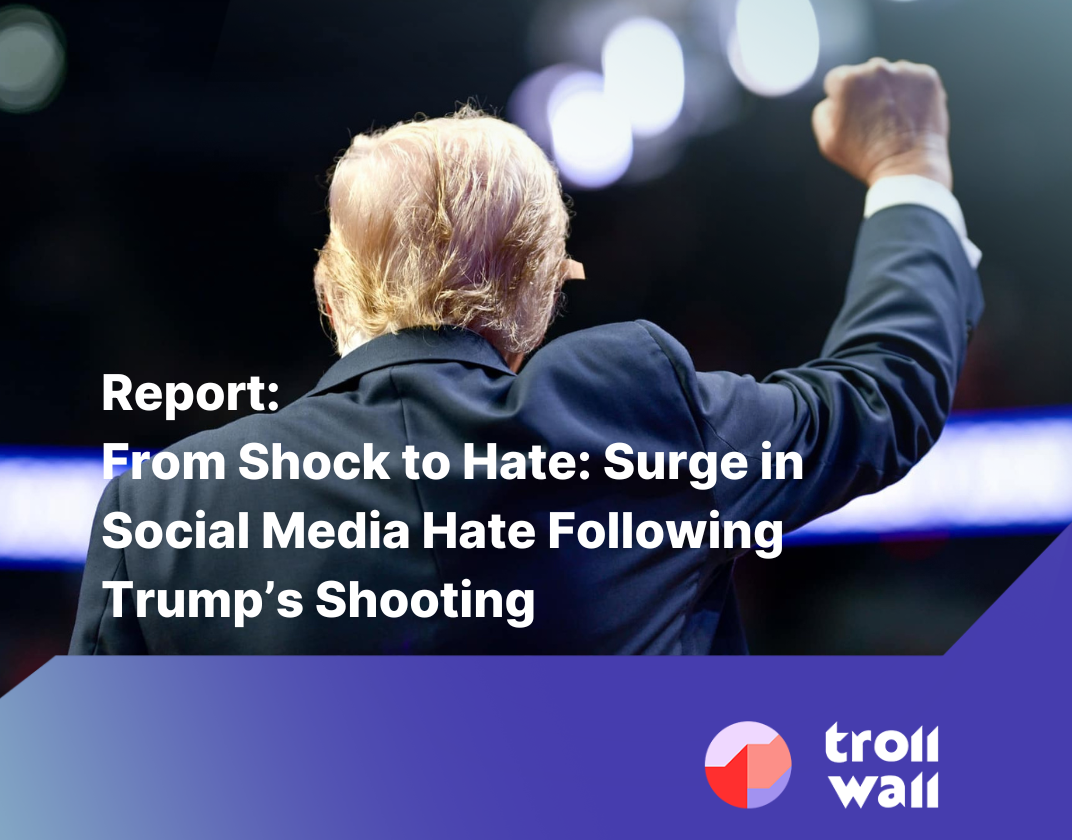An independent analysis conducted by our team at TrollWall AI, an AI-powered content moderation platform, revealed that in the following 4 days after the attempted assassination of former U.S. president Donald Trump on July 13, 2024, hateful comments doubled on social media. Over 14% of comments on social media pages of major U.S. news media were detected as hateful, toxic and vulgar. The analysis shows strong polarization within public opinion. Some of the top hateful comments on both sides of the spectrum were directed at women and we identified a significant spike in misogynistic comments in the same period.

Source: Official Facebook page of Donald J. Trump
The stark divide in online sentiment
Our analysis showed that while the number of comments per day had expectedly doubled due to the shock factor, the number of hateful comments had also doubled at a concerning pace. Over 280,000 out of nearly 2 million comments analyzed of the Facebook pages of 21 major U.S. news publishers, including CNN, Fox News, The New York Times, and ABC News were detected as hateful, despite the call for unity and peace by leaders from both parties.
The divide in online sentiment was stark: while there was a flood of comments condemning the shooting, they were contrasted by a wave of hateful remarks that were insensitive and inappropriate toward the victims. Examples of such comments included, “He deserves to die”, “You (the shooter) missed that POS, loser!”, and “I'm hoping he gets a severe infection. Maybe clean it with an injection of bleach”. This troubling divide mirrors findings from a similar analysis three months prior, following the shooting of Slovak Prime Minister Robert Fico, where hateful comments surged threefold immediately after the news broke.

Number of comments vs hateful comments per day. Source: TrollWall AI
The surge in misogynic comments
Moreover, social media posts mentioning female political figures such as former First Lady Melania Trump and Vice President Kamala Harris were among the top posts with the most hateful comments detected. There was a proportional increase in misogynist hate compared to posts that did not mention any female figures. The hateful comments ranged from derogatory remarks about their appearances to racist comments about their origins. Comments such as “Kameltoe Harris looks like crap,” “She looks like a ballsac, what an evil disgusting person!” “She is full of sh*t, her eyes are brown,” and “Deport the bebestin euro-hooker for genius Visa fraud.” were found in the online discussions.

Number of comments vs hateful comments per hour showing spike in the late evening. Source: TrollWall AI
Online violence against women in politics
This worrying trend of targeting female political figures is consistent with previous analyses conducted by us, which revealed similar spikes in hate directed at women during the recent European Parliament election. The findings highlight a persistent and troubling pattern of misogyny in political discourse, particularly in the wake of violent events, further exacerbating the already polarized environment. "Online violence has become the main barrier for women entering or staying in politics. The Apolitical Foundation’s report on Politician’s mental wellbeing found political leaders globally have lower mental wellbeing than first responders and police officers, facing high stress from violence, online harassment, and very difficult working conditions. Women are clearly more targeted. This is important for all of us, because it is impacting leaders’ ability to address critical issues like climate change and conflicts.", said Suki Capobianco, Chief Strategy Officer at the Apolitical Foundation.
Conclusion
News publishers, institutions, NGOs, and corporations are still facing major shortcomings by relying solely on the moderation done in the background by major social medial platforms. To avoid becoming the breeding ground for toxicity and hate, AI-powered tools like TrollWall AI address the urgent need for effective content moderation to combat the proliferation of online hate. As the world grapples with the consequences of unchecked toxicity, every brand plays a role in fostering a safe space among their communities while combating polarization through effective moderation of hate and toxicity.
Disclaimer: Analysis is based on the Facebook comments extracted from major U.S. news media as below:
- ABC News
- BBC America
- Breitbart
- Chicago Tribune
- CNN
- Forbes
- Fox News
- HuffPost
- Lost Angeles Times
- MSNBC
- NBC News
- New York Post
- Newsweek
- NPR
- POLITICO
- The New York Times
- The Seattle Times
- The Wall Street Journal
- USA Today
- Washington Post
- Yahoo News
